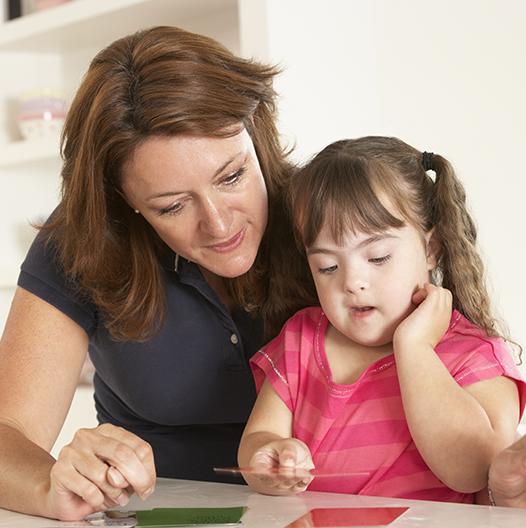Speech and language are often confused, but there is a clear distinction between the two. While speech is the verbal expression of language and includes articulation, which are the way sounds and words are formed. Language on the other hand, is much broader and refers to the entire system of expressing and receiving information in a way that’s meaningful.
If you think that your child may be suffering from speech delay, identifying and treating speech disorder at right time can prove to be very helpful. Although problems in speech and language differ, they often overlap.

A child with a language problem may be able to pronounce words well but be unable to put more than two words together. Another child’s speech may be difficult to understand, but he or she may use words and phrases to express ideas. And another child may speak well but have difficulty following directions.
Signs of a speech delay problem in your child –
Between 12 and 24 months, reasons for concern include a child who –
- Isn’t using gestures, such as pointing or waving bye-bye, by 12 months.
- Prefers gestures over vocalizations to communicate at 18 months.
- Has trouble imitating sounds by 18 months.
- Has difficulty understanding simple verbal requests.
Seek an evaluation if a child over 2 years old –
- Can only imitate speech or actions and doesn’t produce words or phrases spontaneously.
- Says only certain sounds or words repeatedly and can’t use oral language to communicate more than his or her immediate needs.
- Can’t follow simple directions.
- Has an unusual tone of voice (such as raspy or nasal sounding).
- Finds more difficult to understand than expected for his or her age.
Parents and regular caregivers should understand about half of a child’s speech at 2 years and about three quarters at 3 years. By 4 years old, a child should be mostly understood, even by people who don’t know the child.
Early evaluation to your child’s problem is a way to help them cope with their speech delay. Consulting a pathologist is crucial. In conducting an evaluation, a speech-language pathologist will look at a child’s speech and language skills within the context of total development.
Besides observing your child, the speech-language pathologist conducts standardized tests and scales, and look for milestones in speech and language development.
The speech-language pathologist will assess –
- What your child understands (called receptive language).
- What your child can say (called expressive language).
- If your child is attempting to communicate in other ways, such as pointing, head shaking, gesturing, etc.
- Sound development and clarity of speech.
- Your child’s oral-motor status (how a child’s mouth, tongue, palate, etc., work together for speech as well as eating and swallowing).
If the speech-language pathologist finds that your child needs speech therapy, your involvement as a parent will be very important. The speech therapist will show you how you can work with your child at home to improve speech and language skills.
Author Bio: My Name is Taara Singh, I enjoy reading & writing articles about Health News, tips & Fitness Topics. You can learn more about Taara at her website and you can follow her on Google+.

